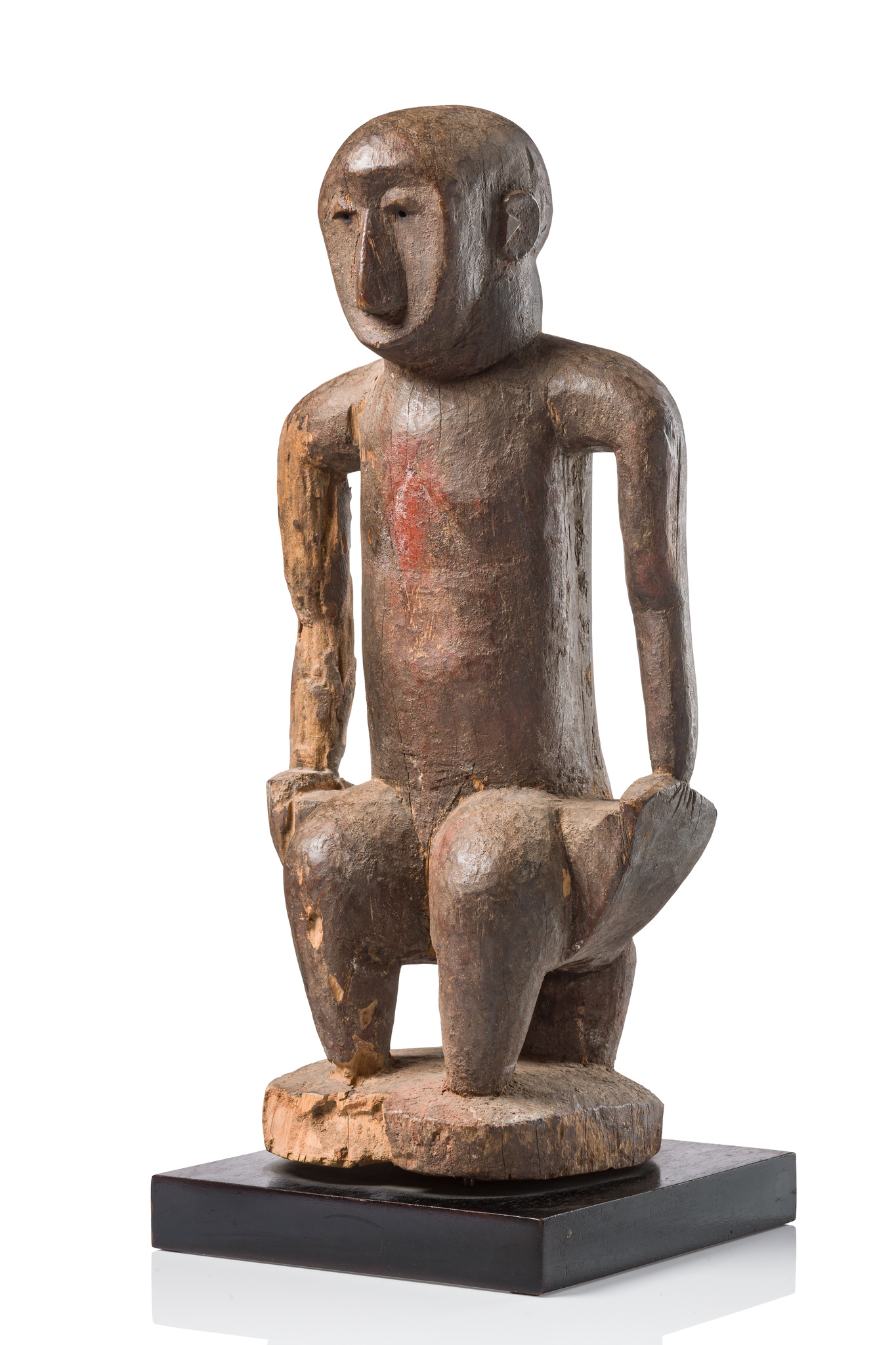Figure d´autel "iran otiba(n)go" ("esprit apprivoisé") · Guinée-Bissau, Archipel des Bissagos, Bidjogo · ID: 3049688
Description
wood, pigments, insect caused damage, base
The Bidjogo believe that the spirit of deceased family members live on past the expiration of the person’s body, but only for as long as the soul is remembered by surviving family members.
At death, the surviving members create a wooden figure “iran otibago” (also known as “ira” or “eraminhô”) within which the spirit of the ancestor resides.The figures are kept on small altars at home or in the village, and offerings are regularly made to them to appease the ancestor within.
“Iran otibago” are usually associated with fertility and high crop yields.
It was reported that a villager looking to tend a field or grow crops from the land must also offer animal sacrifices to the “iran otibago” figure asking ancestors for approval to make use of the land and for a successful harvest. After the harvest, the farmer is also required to present a portion of the crops to the “iran otibago as an offering of gratitude.
“Iran” figures appear in a variety of forms, varying from the more naturalistic, like the figure here, to the abstract.
L’objet Figure d´autel “iran otiba(n)go” (“esprit apprivoisé”) numéro d’objet 3049688, a fait partie de la dernière 101e vente aux enchères du 11 novembre 2023 le Zemanek-Münster Hôtel des ventes. L’objet portant le numéro de lot 195 a atteint un prix de vente de 3 500 €.
Vous trouverez d’autres Figures et autres types d’objets populaires sur nos pages thématiques associées. Notre page sur le thème Art africain pourrait également vous intéresser.





